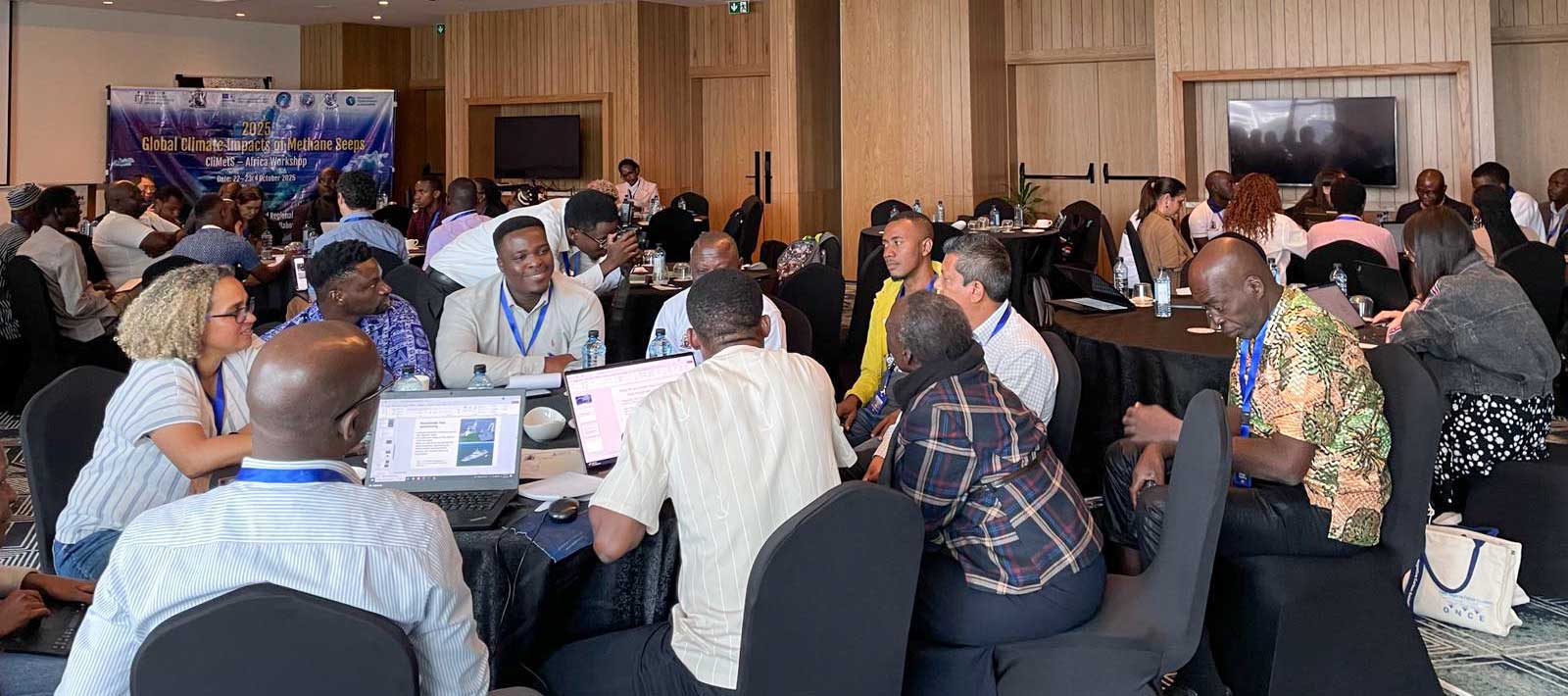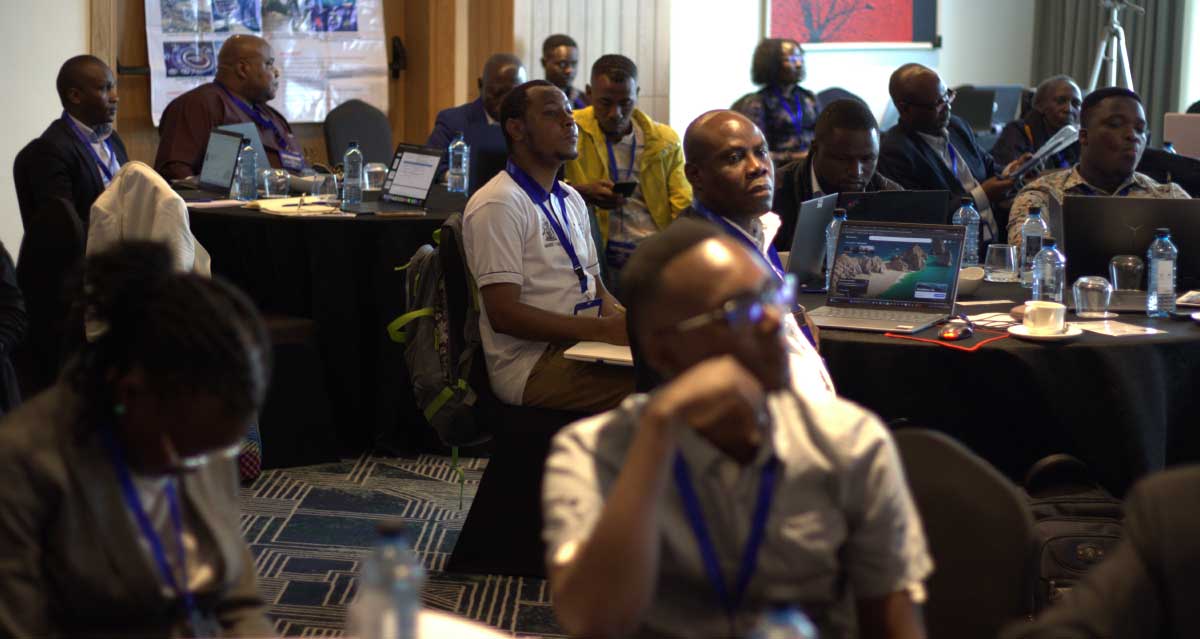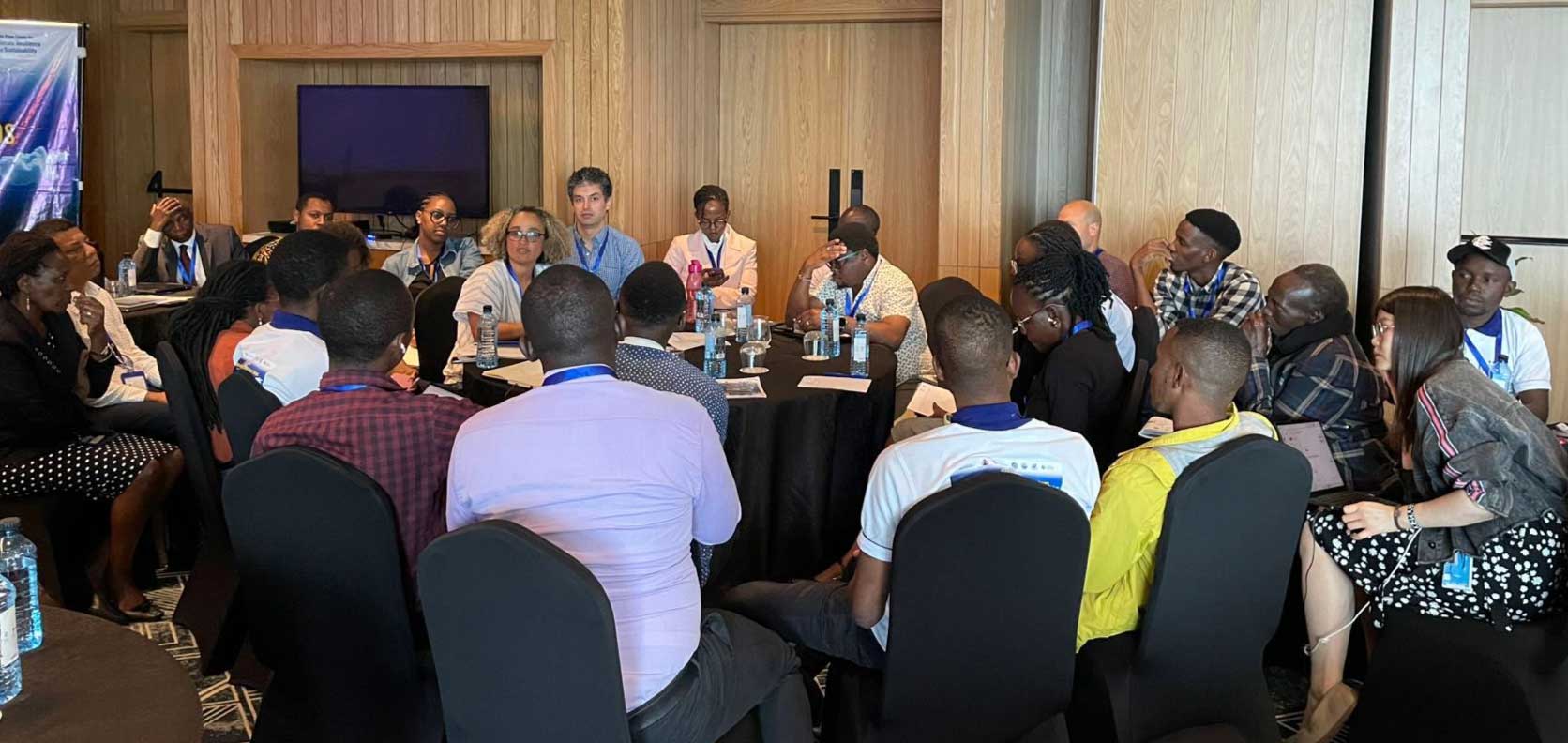
On 22nd and 23rd of October 2025, more than 70 ocean scientists, industry leaders, and policymakers from 17 African countries gathered in Nairobi for the Global Climate Impacts of Methane Seeps (CliMetS)-Africa Workshop, a meeting dedicated to exploring one of the ocean’s lesser-known mysteries: methane seeps.
The CliMetS programme, led by the Southern Marine Science and Engineering Guangdong Laboratory (Guangzhou), Hong Kong University of Science and Technology (HKUST), and the University of Nairobi, and supported by the Intergovernmental Oceanographic Commission of UNESCO’s Sub-Commission for Africa and the Adjacent Island States (UNESCO-IOCAFRICA), and the African Network of Deep-water Researchers (ANDR), aims to enhance understanding and capacity through shared research, training, and technological innovation.
Methane Seeps and Climate Links
Methane seeps are natural vents on the seafloor where gas escapes from beneath the Earth’s crust. Though invisible from the surface, they sustain unique deep-sea ecosystems and play a vital role in regulating the planet’s climate.
Methane, a greenhouse gas more than 80 times stronger than carbon dioxide in a 20-year period, can either be absorbed by marine microbes or escape into the atmosphere, where it accelerates global warming. Understanding how and when this happens is crucial for predicting climate change and protecting ocean health.
Yet, despite their global significance, methane seeps in African waters remain largely unmapped and unexplored. Without this knowledge, scientists and policymakers lack the data needed to assess environmental risks, design effective marine policies, and unlock the ocean’s potential for sustainable development.
The workshop served as a regional precursor to upcoming ocean research cruises in the Indian and South Atlantic Oceans, aimed at filling this knowledge gap.

Collaboration for Capacity and Innovation
Opening the event, Prof. Qian Pei-Yuan, Programme Director of CliMetS and Deputy Director at the Southern Marine Science and Engineering Guangdong Laboratory (Guangzhou), emphasized the urgency of advancing methane seep mapping across the Southern Hemisphere. He made a heartfelt call for regional collaboration to jointly identify research priorities and co-develop action plans that will drive methane seep research in Africa forward. He also reaffirmed the commitment of the CliMetS partner institutions to supporting regional capacity building and knowledge sharing.
Representing Mr. Ibukun Adewumi, Head of IOCAFRICA, Mr. Edwin Mwashinga highlighted the Sub-Commission’s role in advancing ocean-climate science and capacity development through initiatives such as the Africa Ocean Decade Roadmap and the SEAWARD Programme. He underscored IOCAFRICA’s readiness to help integrate methane seep research into regional frameworks and called for stronger African participation in global assessments such as the Global Ocean Science Report.

Curiosity to Commitment
When the CliMetS-Africa Workshop opened in Nairobi, discussions on methane seeps sparked keen interest among participants. As the sessions unfolded, curiosity deepened into understanding. By the second day, participants were already shaping ideas on how Africa could take the lead in advancing its study.
Throughout the workshop, participants exchanged insights on how to better explore and manage these under-researched systems, from addressing challenges such as limited equipment and research funding to highlighting inspiring examples of regional collaboration already taking shape. A unifying message emerged: Africa has both the need and the determination to drive methane seeps research forward, but stronger networks and sustained support will be essential.
Charting the Way Forward
As the workshop drew to a close, participants translated their discussions into a clear roadmap for action. They outlined practical steps to strengthen Africa’s role in deep-sea and climate research.
Key recommendations from the workshop included:
- Developing a continental inventory of methane seeps that integrates African data;
- Expanding training and research programmes in deep-sea exploration;
- Strengthening South–South collaboration and data sharing;
- Mobilizing resources and interdisciplinary partnerships;
- Embedding methane seep research into national and regional marine policies.
The outcomes will inform a regional action plan to guide future research and capacity building under the CliMetS programme.
By fostering collaboration and visibility, the workshop positioned Africa to play a stronger role in global efforts to understand ocean–climate interactions and protect vulnerable marine ecosystems.

